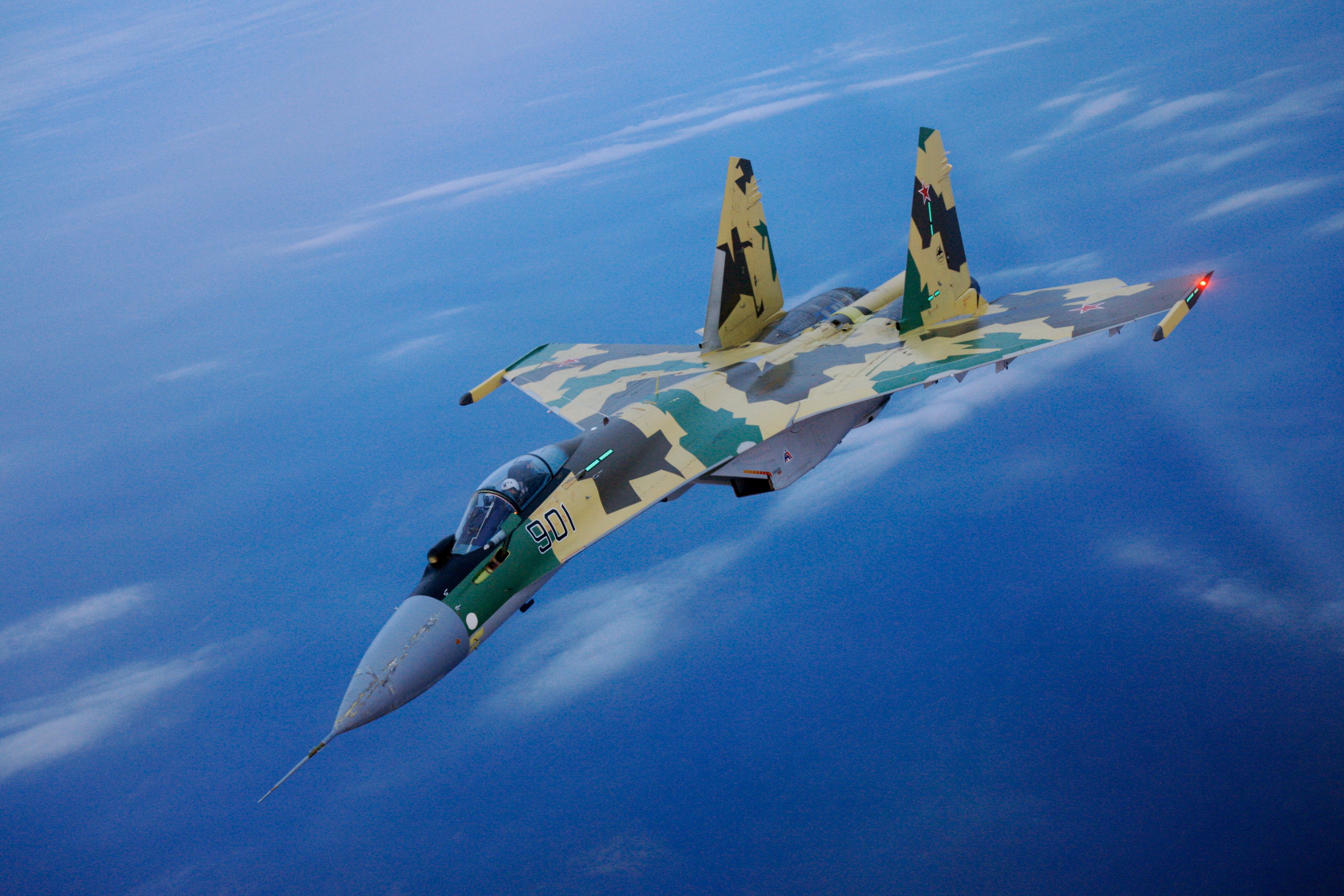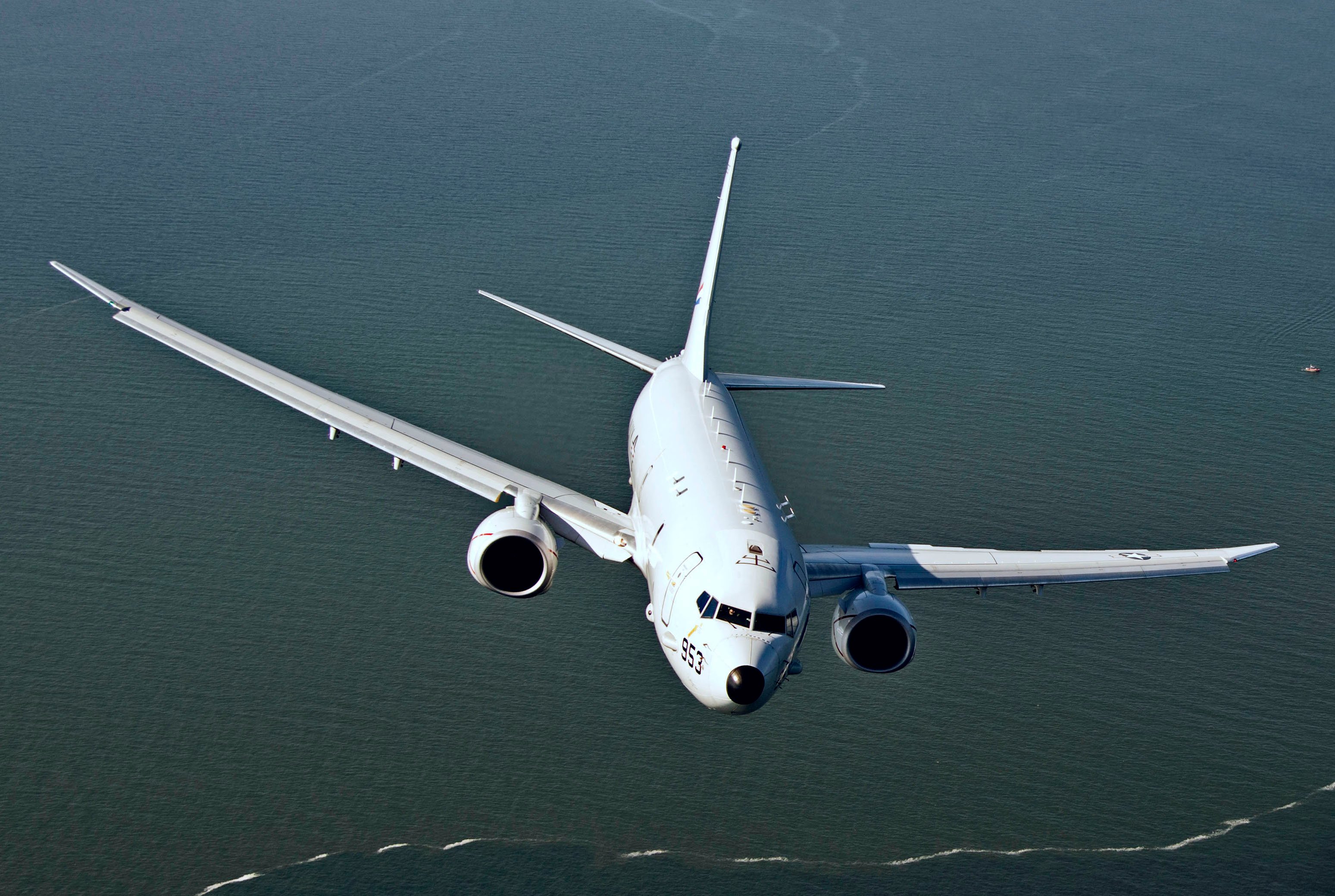
A Navy surveillance aircraft was intercepted by a Russian fighter over the Mediterranean Sea “determined to be unsafe,” according to a late Tuesday statement from U.S. 6th Fleet.
A Navy P-8A Poseidon was operating in international airspace over the Mediterranean when it was intercepted by a Russian Sukhoi Su-35 three times. While the first and third interactions were determined to be in line with international rules, the second was called out by 6th Fleet.
“The second interaction was determined to be unsafe due to the SU-35 conducting a high speed pass directly in front of the mission aircraft, which put our pilots and crew at risk,” read the statement.
“The crew of the P-8A reported wake turbulence following the second interaction. The duration of the intercept was approximately 28 minutes.”
The Navy release added, “while the Russian aircraft was operating in international airspace, this interaction was irresponsible. We expect them to behave within international standards set to ensure safety and to prevent incidents, including the 1972 Agreement for the Prevention of Incidents On and Over the High Seas (INCSEA). Unsafe actions increase the risk of miscalculation and potential for midair collisions.”

The following is the complete June 4, 2019 statement from 6th Fleet.
On June 4, 2019, a U.S. P-8A Poseidon aircraft flying in international airspace over the Mediterranean Sea was intercepted by a Russian SU-35 three times over the course of 175 minutes. The first and third interaction were deemed safe. The second interaction was determined to be unsafe due to the SU-35 conducting a high speed pass directly in front of the mission aircraft, which put our pilots and crew at risk. The crew of the P-8A reported wake turbulence following the second interaction. The duration of the intercept was approximately 28 minutes.
While the Russian aircraft was operating in international airspace, this interaction was irresponsible. We expect them to behave within international standards set to ensure safety and to prevent incidents, including the 1972 Agreement for the Prevention of Incidents On and Over the High Seas (INCSEA). Unsafe actions increase the risk of miscalculation and potential for midair collisions.
The U.S. aircraft was operating consistent with international law and did not provoke this Russian activity.





